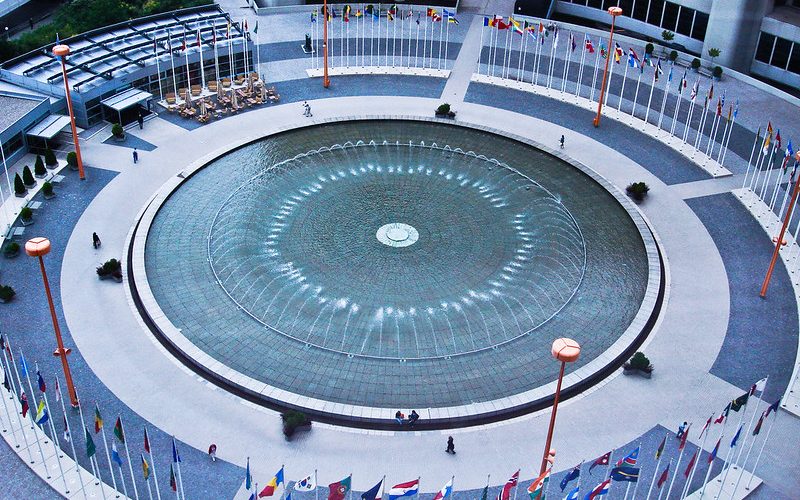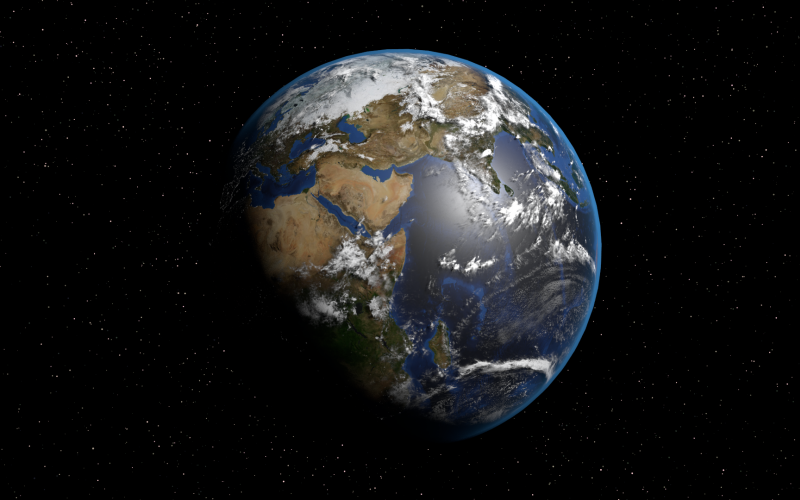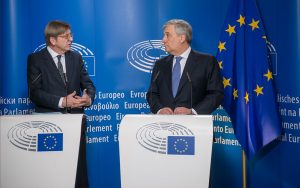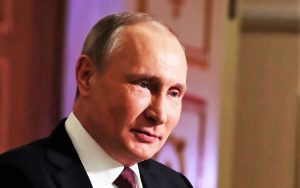This article was initially written for a University course on International Theory.
Introduction
In everyday language, the adjective “international” depicts the scope of an organisation or institution as broader than national boundaries, and is commonly used as a synonym of “global”. However, a literal interpretation would rather define the international as meaning between different specifications. This reading clearly represents the world as divided into discrete “nationals” interacting with each other. Thereby, the international and the global come to express very distinguishable concepts, each entailing specific ontologies that are conducive to different accounts of world politics.
The analytical path of this article will start by historically contextualising the two concepts and their relation with each other; it will then discuss how the underlying ontologies of both, the international and the global, can be considered as socially constructed, reflecting distinct foreign policies of states across the 20th century until today; a socio-political analysis of current affairs will follow, observing phenomena such as populist movements and terrorism through the lens of the international-global dichotomy. All this will add up to demonstrate the main point of this analysis: even though the “international” and “global” spheres are distinguishable in theory, and even somehow contradicting (as they seem to rest upon mutually denying premises), they are both very present in today’s world. The process of de-territorialisation, which theorists of the global thought of as linear and inevitable, has only partially taken place. The weakening discreteness of the international led to the strengthening of even more discrete, nation-and culture-based movements: new narratives have been gaining momentum, using weakened territorial control as leverage to justify questions of race or religious discrimination. Today, the global and the international constitute distinct yet interdependent, coexisting and mutually caused systems of political relations.
Historical context
The first thing one needs to consider is the origin of the word “international”. Its pedigree is attributed to the British philosopher Jeremy Bentham, who introduced it in the field of law to denote “the mutual transactions between sovereigns as such”(Bentham 1789:296). Sovereigns are thus considered not as private persons, but as representatives of a sovereign state. It goes without saying that the very concept of “sovereign state”, born after the treaty of Westphalia in 1648, is fundamental for Bentham’s efforts to distinguish internal from international law. Territoriality is the raison d’être of the domestic-foreign dichotomy: that is why the relevant interactions in world politics were, until the end of World War II, thought to be made primarily by states or state representatives, all other groupings of people being downplayed in their ability to shape the international scene. By the time of the fall of the Austro-Hungarian Empire in 1918, the ideas of “state” (entailing territorial control and clear borders) and that of “nation” (a high extent of socio-cultural homogeneity of those inhabiting the territory of the state) tended in Europe to be considered as essentially tied together, thus disregarding the political and social role of non-dominant minorities (as well as of women). Until the end of World War II, most policymakers and theorists of the international were only interested in nation-states interacting with each other by means of their majority representatives. Given the predominance of realism in the international relations of the time, interaction primarily meant conflict, defining war as, according to the famous Clausewitz quote, the “continuation of politics by other means” (1832:87).
The second half of the 20th century brought substantial changes to world politics. The second World War’s devastation and the consequent nuclear threat prompted Western sovereign states to move towards cooperation, leading to the rise of liberalism as a different interpretation of international relations. Institutions such as the UN, the EU, the NATO or the World Bank all shared the necessity of reforming the international towards a more global dimension. This determined the weakening of the state as the main ontology of world politics: liberal institutions allowed decisions on matters of common interest to be made at a supranational level, thus limiting national interest and sovereignty of member states.
Until the end of the Cold War, a realist perspective could explain the rise of liberal institutions as a strategic move of Western sovereign states, who saw the Soviet Union as the biggest military threat and thus found it wise to ally with other liberal democracies (the way they did before against Nazi Germany). All member states gained from being part of liberal institutions in economic (trade, capital mobility, foreign direct/portfolio investments) and military terms (mutual protection, non-aggression pacts), which made it less profitable for them to wage war against each other. Yet, according to this view, the fall of the Soviet threat in 1991 should have given way to renewed hostile relations in the Western world, which did not occur. Most countries continued to deem cooperation as more profitable than conflict. Alongside (or in contrast with) liberalism, the post-1968 world saw the rise of different narratives, most of which adopted a constructivist perspective (such as feminism or postcolonialism). All of these contributed to expose different ontologies than the state (gender, race, culture). Given such plurality of narratives, the “international” in its literal meaning appears today rather limited in its efforts to explain world dynamics.
The politics of meaning-fabrication
A constructivist perspective would view the attribution of meaning to the words “international” and “global” as a political act, one which would serve the interests of specific actors or groups. As mentioned above, the international tends to consider the nation-state, i.e. the cultural and territorial domination of state representatives over a clearly bordered territory, as the main actor of world politics; in this respect, the prewar IR scholarship fell into what John Agnew refers to as the “territorial trap”, namely the idea of states as fixed units of sovereign space and as containers of societies (1994:53). It is important to keep in mind that both “international” and “global” are Western-based terms. If the international system entails the rulers’ power over a fixed, territorial state, the shift to the global could be understood as reflecting Western (mainly U.S.) intentions to expand this power towards a more fluid, transnational, and de-territorialising space. It can be argued that thanks to mass destruction in World War II, which made further world conflicts impossible without devastating effects for all actors at play, the shift from international conflict to cooperation inevitably led to global interconnectedness. In turn, liberal institutionalism could be read as an effective means for world powers to de-territorialise their influence, in order to expand transnationally without physically invading other sovereign states. The process of de-territorialisation, enormously enhanced by the internet and the digital revolution, can be easily identified as the main fault line between the international and the global.
In relation to the argument of international cooperation as the primary cause of global interconnectedness, a significant aspect is that, in spite of territorial evanescence, the global still entails a crucial role for the sovereign state. Even though many important actors of today’s world (such as multinational enterprises) do not represent any state in particular, liberal institutions are able to provide security, trade or legislative agreements and partnerships only by regarding states and “sovereigns as such” (i.e. state representatives, as mentioned above) as their main actors. States engage in a mutually benefitting social contract via the liberal institutions, which are both “constructs and constraints” (Ikenberry 1998:52) meaning that they both serve someone’s purpose as social constructs and limit strong states’ ability to arbitrarily dominate others. Therefore, the United States, where most liberal institutions were founded, is able to exert durable and relatively peaceful influence over the rest of the world by strategically restraining its power over smaller states in exchange for cooperation (ibid.:47).
The world today
Nonetheless, the gradual shift from the international to the global encountered significant degrees of resistance. The neoliberal doctrine and the de-territorialisation process produced equally strong drives of enthusiasm and scepticism. According to Jeff Colgan and Robert Keohane, “[…] economic elites designed international institutions to serve their own interests and to create firmer links between themselves and governments. Ordinary people were left out.” (2016:37). To what extent this corresponds to reality is here not as relevant as the fact that these words are undoubtedly felt by much of the middle-and working-class today, in the West and elsewhere. The rise of populism leveraged this common belief to create new kinds of anti-establishment, anti-elitist, allegedly popular movements. Again, a constructivist perspective could argue that phenomena such as Trumpism and Brexit gave a specific meaning to the popularly perceived “failure of liberalism” in order to gain influence over the global political scene.
Connected to populism in Europe and the U.S. is what I would refer to as “neo-nationalism”, the prefix “neo” being aimed at distinguishing the global-produced nationalism of today from the international-produced nationalism of prewar Europe. Their similarities are manifest: even though genocide and culture-based repression have luckily been limited by the Universal Declaration of Human Rights (UN General Assembly 1948) and other considerable achievements of international law, nationalism is still clearly connected with questions of race (“America first” is commonly perceived as “white Americans first”). Nonetheless, there is one substantial difference between the two. Whilst 20th century nationalism may be defined as the attack strategy of a strong territorial state, aimed at affirming its superiority beyond its borders (such as Hitler’s lebensraum policy, the constantly expanding “vital space” of German hegemony), today’s global-produced nationalism of populists and Eurosceptics is one of retreat, the defence strategy of a considerably weakened, de-territorialising state. Narratives of immigrants “invading” the West and walls-building policies stem directly from the aggressiveness of states wounded in their territorial dimension.
On the other hand, all these race and culture narratives have obviously produced discontent in ethnic or religious minorities in the West, and their relative majorities in developing countries. Besides causing “inner” resistance through populism, aversion to the liberal order also produced “outer” resistance through the phenomenon of terrorist attacks and propaganda. Modern terrorism is a global phenomenon. Unlike populism, it is not vertical and state-tied, but rather horizontal and world-tied, even though they both use questions of race and culture as their main political tools. Alongside de-territorialisation, conflicts between populism and terrorism could also be regarded as fault lines between the international, with its nation-state narrative, and the global, with its politics of expansion and evanescent borders. Nevertheless, it must also be considered that the Islamic State, unlike al-Qaeda, founded its ideological apparatus on territoriality, using the region of Iraq and the Levant as the core from which to spread Islamic fundamentalism all over the world. Viewed as a synthesis of the inter-national lebensraum policy and the global, de-territorialised cultural influence on the world, the Islamic State (which has the word“state” in its name) significantly represents today’s global-international world system.
Conclusion
What has been argued thus far can be summarised by positing that, although “international” and “global” are two distinct concepts with different contextual backgrounds, they keep influencing one another and are both present in today’s world. In a way, their historical processes moved in opposite directions. The international shifted from predominant conflict to predominant cooperation, and from territorial control to de-territorialisation. The global, which gained momentum thanks to the evolutionary process of the international, generated conflict from the gains and losses of the liberal cooperation policies. This prompted several actors to retrieve the nationalist/territorial rhetoric used in pre-liberal times, adapting it to the new circumstances and bringing the territorial/culturally homogeneous nation-state back on the scene. Wounded, but not killed, the state aggressively defends its interests by looking after the losers of neoliberalism. At least for now, globalisation and liberal institutions failed to completely de-territorialise world politics. I strongly believe that both the liberal status quo and the verbal and physical violence of populism and terrorism can only be overcome through a proactive synthesis of the global and the international, valuing both the state and the transnational institutions’ ability to monitor the winners and reintegrate the losers. Such policies might lessen the probability of violent reactions or growing inequality.
Sources
Adler, E. (2008)‘The Spread of Security Communities: Communities of Practice, Self-Restraint, and NATO’s Post-Cold War Transformation’, European Journal of International Relations, 14(2),195-230 (background knowledge).
Agnew, J. (1994)‘The Territorial Trap: The Geographical Assumptions of International Relations Theory’, Review of International Political Economy, 1(1), pp. 53-80.
Bentham, J., Hart, H. and Burns, J. (1970) An Introduction to the Principles of Morals and Legislation, Oxford: Clarendon Press.
von Clausewitz, C., Howard, M. and Paret, P. (1989) On War (Indexed Edition), New Jersey: Princeton University Press.
Colgan, J., Keohane, R. (2017)‘The Liberal Order is Rigged: Fix it Now or Watch it Wither’, Foreign Affairs (Council on Foreign Relations), 96 (3), pp. 36-44.
Huntington, S.P. (1993) ‘The Clash of Civilisations and the Remaking of World Order’, Foreign Affairs, 72(3), pp. 22-49 (background knowledge).
Ikenberry, G. (1998)‘Institutions, Strategic Restraint, and the Persistence of American Postwar Order’, International Security, 23(3), pp. 43-78.
Neumann, I. B. (1996)‘Self and Other in International Relations’, European Journal of International Relations,2(2), 154-174(background knowledge).
UN General Assembly, Universal Declaration of Human Rights, 10 December 1948, 217 A (III), available at: http://www.refworld.org/docid/3ae6b3712c.html [accessed 9 January 2018]








Be First to Comment